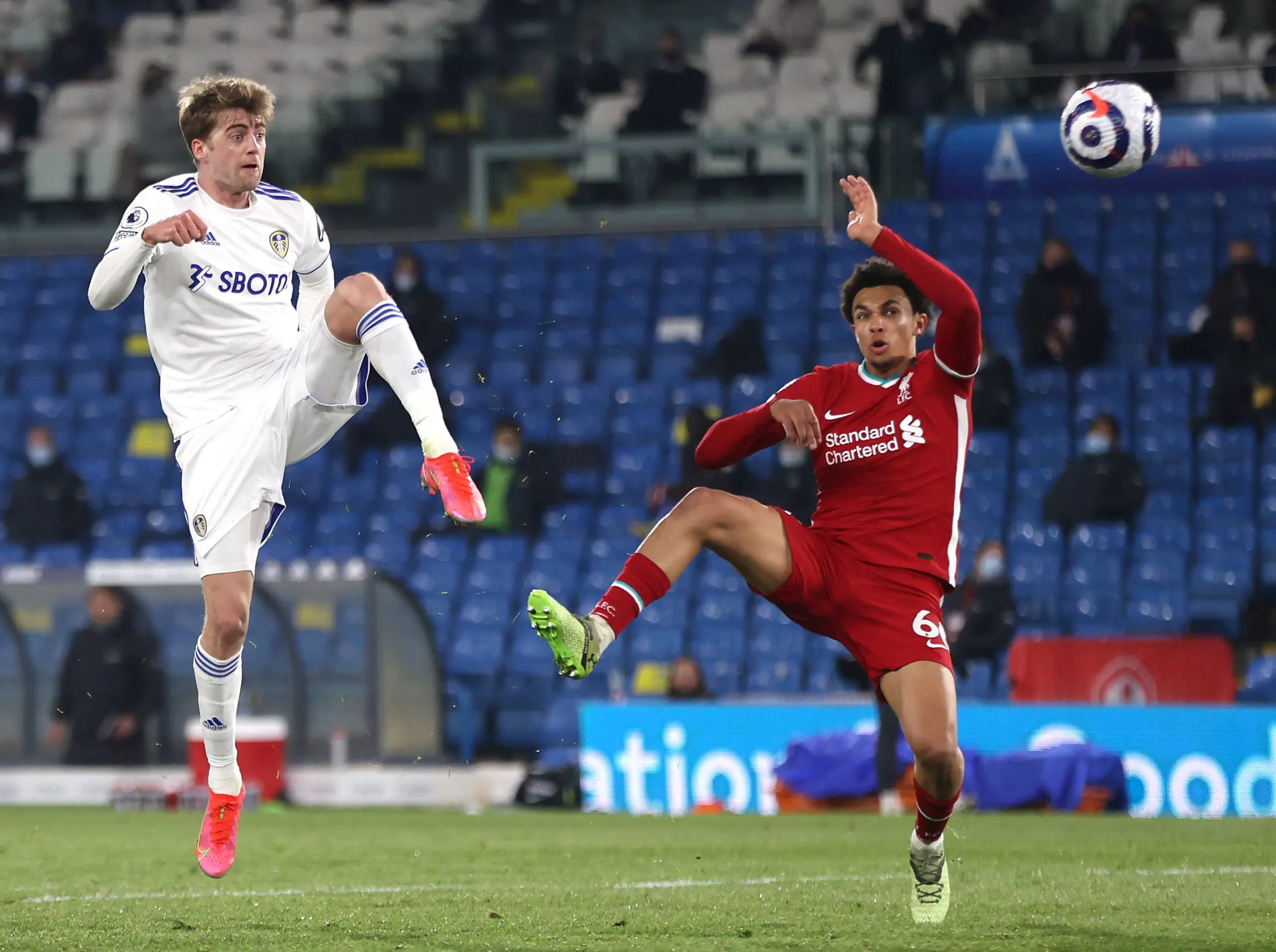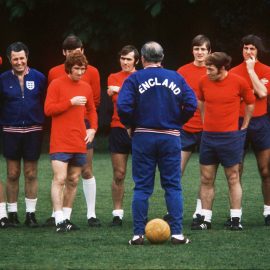The nation’s disaffection with England’s inability to keep possession in the aftermath of England’s World Cup warm-up match with Mexico on Monday shrouded what should have been a day of high praise for full back Glen Johnson. The Liverpool man scored a superb goal to give England a 3-1 victory – displaying a skill, tenacity and two-footedness that were he Brazilian, would have had the world drooling.
Yet still he has his detractors. Why is it that in this country as soon as we get something good, we look to pick holes in it? Judgement, such an absolute and final act, is too often proffered not at the end of sportsman’s career, but rather, after his first mistake.
In the cauldron of premier league and international football the phrase learning curve is nigh on obsolete. Talented youngsters, no matter how talented, are lambasted for the slightest inefficiency in their game, never mind the truism that ‘an expert is someone who is made all the mistakes you can make in a very narrow field.’
That’s why Gareth Barry was labelled too slow to be a midfielder during the crucial years of his metamorphosis from central defender; why some people criticized Thierry Henry for not scoring enough headers; why Wayne Rooney was jumped upon for his fiery temperament; and it’s why Glen Johnson is predictably branded as someone who can’t defend.
Johnson was justified as man of the match following Monday’s win, especially given the fact that he very often had to contend with two players at once to cover Rio Ferdinand’s apparent malaise. Which he did admirably, yet too often he’s referred to as a liability in the press who can’t look beyond the insipid, lazy footballing clichés whose existence are due merely to the replication of bogus assertions from people who don’t know what they’re talking about.
Johnson’s form defensively has actually been pretty good for Liverpool, England, and even Portsmouth before that, barring a mistake against Slovenia that was in all probability the source of this current fallacy.
After England’s unfortunate 1-nil loss in Ukraine in October, many of the tabloids and broad sheets alike attributed low scores out of ten (such a poorly conceived and poorly executed trend) for Johnson. Never mind that he was responsible for nearly all our key attacking moments in that match, and went past the Ukraine left back countless times with such pace skill and technique that he rivaled many of the worlds best wingers for dynamism.
But no, he was given 5’s, or 6’s (ratings often worse than Ashley Cole’s, who was at fault for the goal, and made very little impression going forward) and criticized with the oft repeated line ‘gets caught out of position’ or ‘okay going forward, but a liability defensively’. One paper criticized the block he got in on a goal bound effort because it broke to the player who eventually scored, all this after Ashley Cole’s mistake!
So there is an undoubted bias there, or what makes for an easy media line – but it is not the truth. Johnson has a natural athleticism that allows him to recover for most situations, however, he does, at times, get caught slightly out of position – but quite simply, this is the risk you take when you play fullbacks able to change the game with runs from deep.
Does anyone remember how often Cafu and Roberto Carlos were caught out of position? Their style was the antithesis of tactical discipline, whatever the match situation. When you attack with such impetus, of course this will occasionally happen; the question is whether you can get back in time, and rectify it. Cafu and Roberto Carlos could, and Patrice Evra does this wonderfully at Manchester United.
Evra has a lot more experience and is better defensively it’s true, but Johnson is still learning his trade and is all of 24 years old. Think back to his days at Chelsea with Mourinho – he was far more of a defensive risk then, nowhere near the athlete and therefore the winger, but look how his game has come on with regular Premier League football. At Liverpool this year he has put in some excellent defensive displays, and lent an extra dimension to their attack. Kopites love him.
If the criticism was minor, and in the vein of ‘well he has made the odd mistake but what he adds going forward far surpasses the potential negatives and given time, he is apt to grow into the role’ it would be fine. But it rarely takes this form. Instead, ever since the game against Slovenia, the media have seized upon this notion of ineptitude in defensive postions.
The problem is, it comes to define him in the public sphere and is repeated by all football fans unable to think for themselves. Then people look for minor mistakes to buttress what is essentially a confirmation bias. Remember Hargreaves before the 2006 World Cup? It became fashionable to dislike him, when hardly anyone in England had ever actually seen him play before.
These kinds of fallacious arguments may actually affect the players psyche and in this case, give Johnson an anxiety in defensive positions which he would not have had otherwise. If David James had lived in another country and not been nicknamed ‘Calamity’ after a couple of howlers in his early days he could have perhaps become one of the best goalkeepers in the world, but instead, the nature of our press dictates that a weakness is an ultimate and irreversible failing – which may also be why we perpetually lose penalty shoot-outs.
In Glen Johnson and Ashley Cole, we have two full-backs to rival those boasted by any other team – including Brazil, Spain and Argentina – and historically, attacking full-backs in World Cups can have a massive influence on proceedings. We’ve waited years for a raiding right-back to balance with Cole on the left, and now that we finally have one, let’s look at the positives instead of any real or imagined negatives because he could star for us at this World Cup – and bear in mind at all times that if Roberto Carlos had been English, our press would have destroyed him for his lack of discipline.
Add Sportslens to your Google News Feed!






